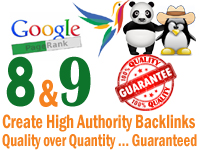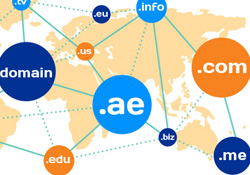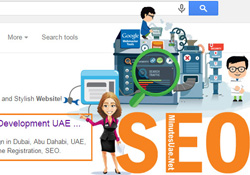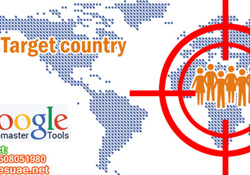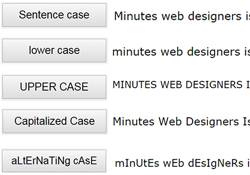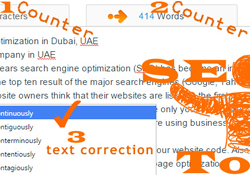The most important 11 SEO tips and recommendations for legal SEO strategies

The year 2016 was very great and has lots of SEO tips strategies and SEO tips. We achieved magnificent power for our website and our customers' websites. We as SEO agency have written these SEO tips because we want to help website owners and webmasters to improve their websites with the help of our tips and SEO strategies. You will understand that search engine optimization is highly concerned with the following information and usability than with tricks. The goal of the most important search engine, Google, is to make valuable information available at the top of its 1st page. Search engine optimization should help to present this information as optimized as possible.
We will point out that basic usability factors, good content and information architecture as well as legal SEO strategies are much more important than technical trick. If you really follow our SEO tips, you can get your website in the top 10 of the first page of search engines by yourself. It is guaranteed but needs to work regularly.
The year 2016 top 11 SEO tips and legal SEO strategies
Be in the top 10 of the first page of Google and search engine
Rule 1: Be Legal!
Search engines, Google, Yahoo and Bing, fight spam. They do everything to avoid spam. How do search engines detect spam? Usually, spam is not legal. Example: Millions of new websites appear online every day. So what does Google think? It is not a good idea for Google to index all of these new websites. New websites with poor and copied content will not appear in Google search. The large number of new websites makes Google decide to protect itself from spam. Google can analyze how good websites work and how spam websites work. If the number of created links in a website is increasing rapidly or Google discovered poor or copied content that means a growth is illegal and the Google spam alarm filter works.
Google can distinguish the illegal growth of a spam page from legal growth by using its "Google Trends" service. Google updates its search algorithm every year. Panda, Penguin and Pigeon are examples of Google techniques to catch illegal SEO strategies. You have to remember also that Google does not solve everything through the robot and technically, but there are thousands of quality advisers who rate your website manually.
Rule 2: Get to know your audience!
Search engines try to identify for which target group you are writing your websites and search engines are trying to analyze whether you are using your target group properly. Of course, the links that point to your website are used, but search engines also try to provide qualitative analysis, for example about the visit times of the users on your website. The closer you know your target group and serve them well, the better you can get your website trusted by search engines. Use Google Analytics tools to improve your usability and analyze if your website is optimized for users. Clearly eliminate any barrier between your website and web audience. In addition, your website visitors should find the targeted information easily. The more convenient your information for users, the better does it also with the search engines.
Rule 3: Avoid barriers!
Here are the main barriers to search engines:- Flash: Google can theoretically index Flash files, but it does not have the same power as normal text.
- Long loading times: The size of a website is also important. Improve the code of your websites for better and higher performance.
- Large image files: Search engines avoid very large image files.
- Session IDs: Google can now deal with Session IDs. But the IDs of JSP pages make Google even more. Google recommends the "id" parameter to name a session variable. It is even better to hide the session variables and use them only for the actual shopping process.
- Slow web server: loading times are becoming increasingly important for Google. The robot gets tired when he has to wait because that eats resources. Pay attention not only to the download time of the HTML file, but also to the loading time of your javascripts, the speed of internal redirects and the DNS server speed.
- Iframes: Search engines are usually not indexing Iframes that is why you should not use it for this purpose.
- Tip: Google Webmaster Tools shows you the speed at which Google indexes your web pages and whether problems occur.
- Long parameter chains: In many websites you still see URLs like page.php? lang = en & cat = 4 & id = 133 or similar. Use so-called URL rewriting to convert this URL to readable forms like this: https://minutesuae.net/en/blog/133/target-country-in-google-webmaster-tools This is very important if you want to optimize a page for search engines!
You should use Google Webmaster Tools as a helpful tool. Google tells you where are problems in your website. Which websites cannot be crawled and how Google sees your website.
Rule 4: Internal linking
A search engine takes a picture of a website. A search engine tries to understand how the structure of a web page is. How the web page is nested and structured. You have to help the search engine by improving the structure of your website. Use friendly navigation with text instead of using your navigation points graphically. Href tags and anchor text inside articles are also very important to navigate to other articles. A sitemap will help creating internal linking as well. This is not Google XML Sitemaps, but really a normal page sitemap like this web design company sitemap.
Keep in mind always with all your efforts the fist rule to be legal! That is, vary your link text. If you always use the same link text, a search engine can interpret this as spam. The best way to create a matrix is to assign a search term to each individual web page and link it to the website to be optimized from any other web page that contains the search term.
Rule 5: Content is King.
This sentence applies just recently to the popular search engine Google. It would be conceivable to create a special workflow by publishing the article. The focus here should also be on legal growth, as in the case of link popularity. The legal growth is what website visitors searched for long-term. You need to focus on providing unique content. Do not worry about when which link you placed on your website or in which fields your website needs fresh content.


